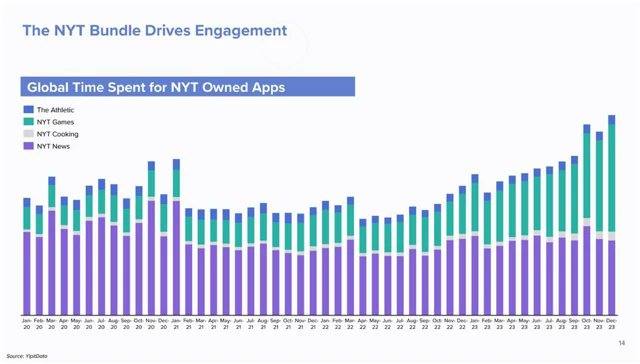AI is changing how we create content, and even how we consume it, affecting areas from entertainment to marketing.
This change is exciting but also brings up important issues about ethics and being open to what’s new with caution.
After all, it’s important to find the right balance between using new AI-powered technologies like ChatGPT and being responsible with them as the future of entertainment is seemingly heading more toward a heavy use of AI.
The Evolution and Impact of AI in Content Creation
In marketing, tools like ChatGPT, Perpelxity AI, and Google Gemini are changing how we create content to match what people like. This technology helps make AI marketing strategies that are incredibly personalized and interesting, which can greatly increase how much consumers are interested and engaged with advertisements.
However, it’s important to be clear about when content is made by AI. To be trustworthy, it still has to retain the quality of a human-written piece. People like things to be real and genuine, so marketers need to tell them when they’re using AI to create content. This helps keep the trust between the brand and the consumer strong.
For example, parts of this article you’re reading was written with AI (probably not a surprise there). But the key lies not in getting AI to pump out content and just pray it’s sufficient.
No, it’s in still vetting the quality and material within the content and verifying the information after the fact. And of course, even doing so still can save marketers a ton of time in the content creation process.
And, as you might suspect, other entertainment mediums are leveraging AI content creation as well.
Let’s look at how AI is changing things for entertainment industry brands, too:
- Companies like Netflix and The New York Times are using AI to make games more engaging:

- AI in marketing campaigns is creating new standards for success, focusing on how well they get people involved and make them take action.
- Using AI the right way in creating content is very important, especially when dealing with issues like being original and respecting copyright.
Key Takeaway: AI is changing how we create content, bringing new levels of personalization in marketing and opening new ways to entertain. However, it’s important to handle it with care when it comes to ethics and being open about its use.
AI in the Entertainment Industry: Beyond Marketing
AI is doing more than just marketing in entertainment. It’s changing the way we enjoy games, movies, and more. Netflix uses AI to suggest shows and movies you might like, making watching more fun and personal.
But, using AI to make content raises questions about originality and copyright. As AI gets better, the entertainment industry must find a balance between being innovative and respecting creators’ rights.
Here’s how AI is changing entertainment:
- Improving storytelling by using data to create content that connects better with people.
- Making video games more exciting by changing based on what the player does and likes.
- Helping to make content creation cheaper and faster by doing some tasks automatically.
Even one of the recent hit game, The Finals, came under backlash for featuring AI voiceover work for the in-game announcers. This ruffled the feathers of many in the gaming community as it signals the declining use of traditional actors and actresses in favor of substituting human talent with replicable capacities through AI.
This is the future of entertainment we’re facing, folks. It’s already come for gaming, and it will be more prolific in cinema before long.

Key Takeaway: AI is making entertainment more personal and engaging, but it also brings up important questions about ethics, such as the density of which its favored over human talent and creation.
The Future of AI-Generated Content: Opportunities and Challenges
The future looks bright for AI in making content, with tools like ChatGPT leading the way to more personal marketing and entertainment. This change aims to make experiences more suited to what people like, changing how we interact with content.
But, this future also brings big challenges, like the spread of false information and the effect on jobs. As AI gets better at making complex content, it’s harder to tell apart what’s made by humans and what’s made by machines. This brings up issues about what’s real and who to trust.
As we move forward, here are some important things to consider:
- Setting up strict ethical rules for using AI in making content, to ensure it’s accurate and not misused.
- Being open about when AI is used, so audiences know when content is made by AI to keep their trust.
- Teaching creators and marketers about AI marketing automation, so they can use these tools wisely.
- Watching how AI affects jobs, and finding ways to help and retrain those impacted by automation.
Key Takeaway: AI’s role in content creation is huge, offering chances for new ideas but also bringing ethical and practical issues that we need to handle carefully.
Final Word on the Future of Entertainment and Marketing with AI
AI is changing the game in creating content. It’s opening up new ways for marketing and entertainment, allowing for more personal and engaging experiences.
But as we dive into this future, it’s critical to remember the need for ethical guidelines and being open about how we use AI. Keeping trust and ensuring the quality of AI-made content means we must keep talking and researching responsibly. Let’s commit to using AI’s power in a way that values both innovation and doing the right thing.
Related Video
If you’re ready to level up your digital marketing with AI, Single Grain’s marketing experts can help!👇
For more insights and lessons about marketing, check out our Marketing School podcast on YouTube.



